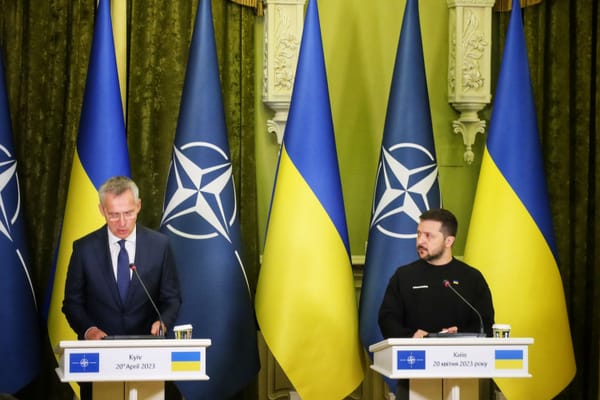You that are young shall never see so much, nor live so long. So you will have no idea how astonishing it is for me to see a NATO summit taking place in Vilnius, capital of Lithuania. My deepest incised memory of that complicated city is of three raw days of gunfire, terror, and lies. These took place as the supposedly liberal Soviet leader Mikhail Gorbachev made his last effort to hold on to the Baltic states by force. It was January 1991, and Moscow knew that the attention of the world was turned to the first Gulf War and Operation Desert Storm. Those reporters who, like me, saw those bloody days are still resentful that this event never received the attention it deserved and is little-remembered. But we remember it. I remember it. And here is a note to anyone who accuses me of being a Moscow stooge. You cannot begin to imagine what a stupid allegation this is, after what I saw in Lithuania on those dark days and nights.
Gorbachev, who was never at all liberal or enlightened when it came to giving up power over this key strategic zone, presumably thought he could get away with murder as the world looked the other way. And he did. His forces, including the private army of the KGB secret police, shamelessly opened fire on peaceful protestors, first at the press building and then at the TV tower. The Parliament building became a fortress (some of the giant barricades built during those desperate days can still be seen there). It was defended by fanatical patriots with makeshift flamethrowers. I used to use the phones there (it was one of the few places with telephones that could reach Moscow), and was always glad to get away, not wanting to be burned to death even in a good cause.
I thought it was over after the first clash, when the Soviet Army tried and failed to terrorize the crowd by firing (mainly) blanks at them. There were some live bullets too. In fact, this nervous action made things worse. Men and women who had stood firm as the troops loaded, aimed, and fired in their faces became utterly furious and vengeful when they realized that the Kremlin did not in fact have the nerve to kill them. I will always remember them, respectable middle-class people coming down the steps in their winter coats and hats to kick, punch, and inventively insult the Central Asian soldiers who had fired the blanks. That was on Friday.
But despite the apparent lull, we of the Western media kept watch from the top of our city-center hotel during the following nights of curfew, and wisely so, for in the small hours of Sunday the western sky glowed briefly red and an enormous rumbling boom announced a KGB assault on the TV tower. I and some colleagues hurried there, at one point menaced by tanks which actually swung their barrels round to point at the windscreen of our car. In the USSR in 1991, you did not take chances at such moments, so we braked and fell back. But we were still in time to see and hear the crackle of live bullets, for this time there were no blanks and 14 people were shot, or crushed by tanks. Ever anxious to save my skin, I lay down on my back in the snow and interviewed the protestors from a supine position, urging them in vain to follow my example. Madly brave, they remained standing as they sneered at me among the pinging bullets, “What do you think of your precious Gorbachev now?”
